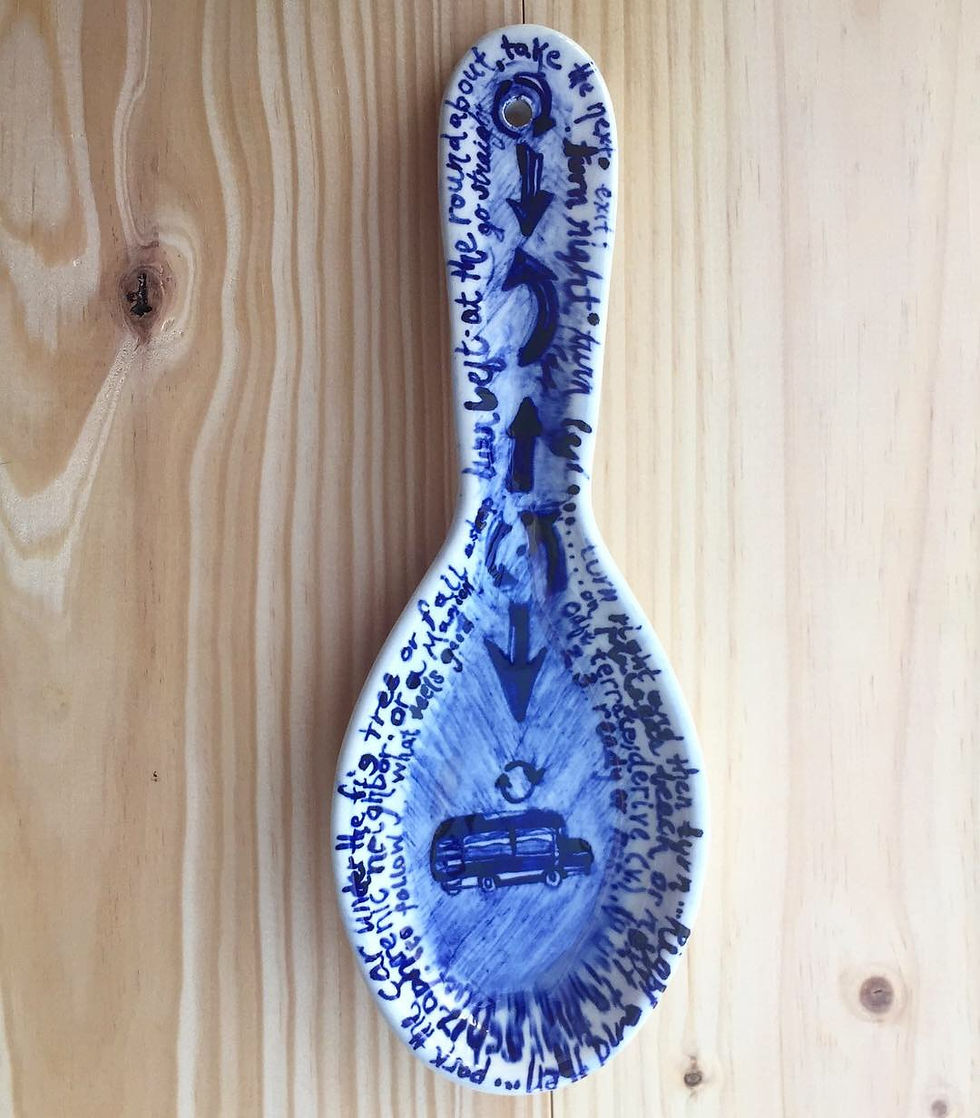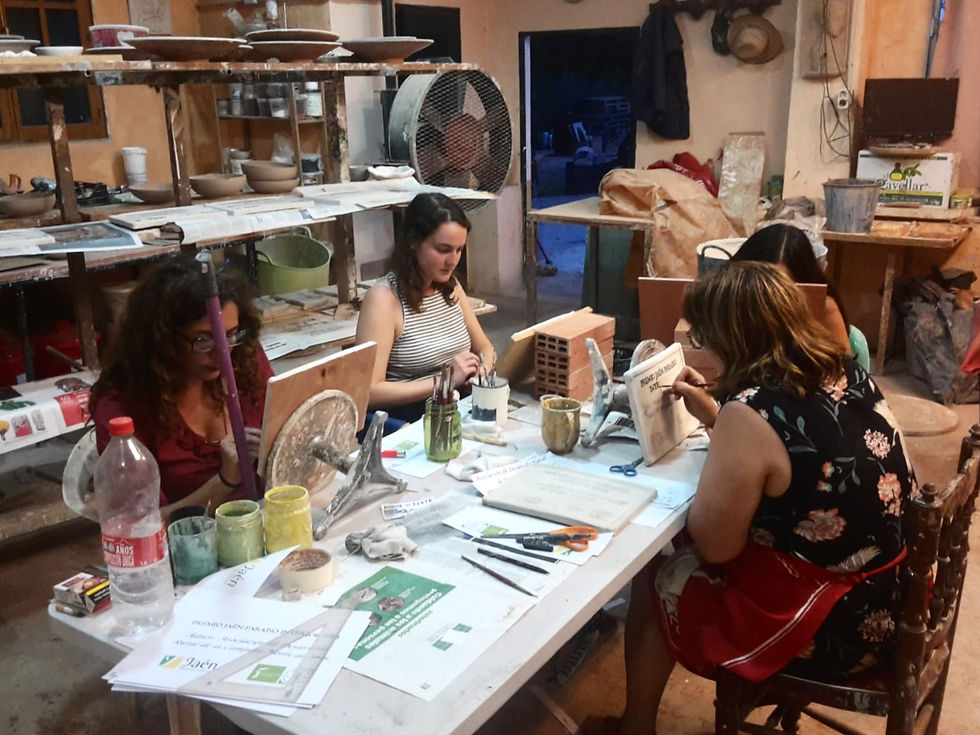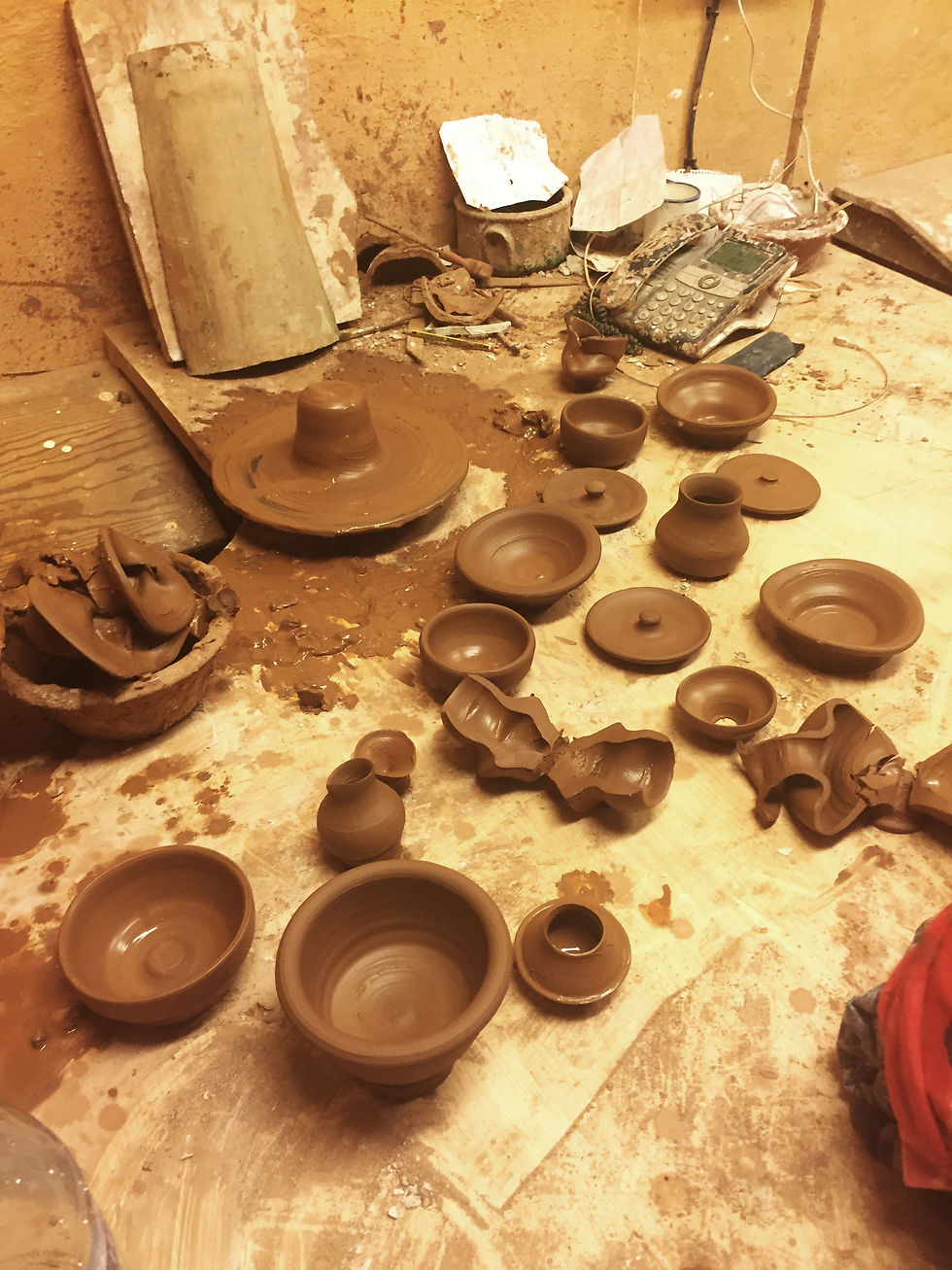ceramic studies






In the Alfarería of Alfonso Góngora and family
Teaching in public schools is a great way to meet people. During my time in Úbeda, the pottery teacher and I became good friends. We often spoke about craftwork and ceramics, and I had expressed interest trying my hand at the pottery wheel. My friend later introduced me to a kind family of ceramists, and suddenly I had the unique opportunity to learn the Andalusian pottery from a sixth generation Alfarero.
Much of what I learned was the mental and physical postures required to work in the trade. Working the wheel can be very calming, yet what you bring is often what your piece turns out to be. If I weren't steadied at the start, my piece would start leaning and wobbling. If I started to hone in on one part, the rest would lose structure. Throwing helps assert my intentions at the right moment. Going to the wheel nervous may result in flying lump of mud or "barro".
Apart from learning ceramics jargon in Spanish, I found it to be a great practice of making light of things. Alfonso Góngora, my teacher, would often say "Good. Now throw that out." There were constant iterations. Constant experiments. I started out making bowl lids, then cups, then vases. The taller the piece, the more challenging it became. Making clay forms was a lot like making architectural spaces, too. The base and edge conditions have to be a specific thickness. Often Góngora would slice the "cacharro" (which literally means "thing' in Spanish) in section as a way to analyze the thickness of the piece.
Like many creative disciplines, pottery is an absorbing way of life. Many late nights and tight deadlines. Sometimes orders would be changed after all of the pieces had been made, and the studio would have to make an entire set again. Other times there were maybe two days to make 100 pieces, and there would be more hands in the studio and all three wheels going. For the family, the work schedule forms to the project or competition at hand. While there is always a new job or bid to be done, a daily siesta will never be missed.


